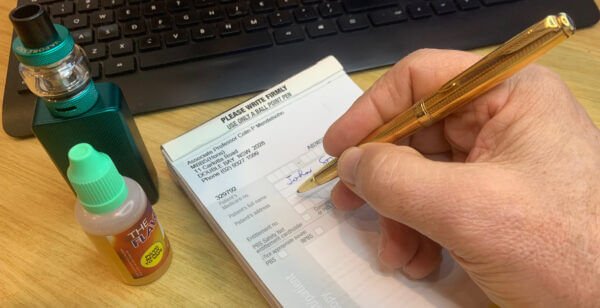The number of GPs authorized to prescribe nicotine e-cigarettes in Australia soars.
February 7 – A growing number of GPs reportedly prescribe nicotine e-cigarette products to people who want to quit smoking after Australia tightened restrictions on e-cigarette imports and imposed hefty fines for illegally selling or importing the products.
On October 1 last year – delayed after strong opposition from within the Coalition – the Australian federal government increased restrictions and imposed severe sanctions on individuals or businesses that import nicotine-based e-cigarette products without a prescription.
Four months have passed since the federal government began implementing a prescription-only model for e-cigarettes.
But there are claims that loopholes in the system have allowed some telemedicine doctors to provide patients with prescriptions for 12 months.
Data from the Department of Health show that GPs authorized to prescribe nicotine e-cigarette products increased from 27 in July 2021 to 354 in October and 618 in January 2022.
But any GP can prescribe these products regardless of the difference in authorized prescribers. At the end of January 1146, providers were already using the interim medical program for nicotine and cessation counseling.
These Medicare benefit plan programs do not require physicians to have a clinical relationship with their patients when using telemedicine.
A department spokesperson said the government would continue to monitor the use of nicotine and cessation counseling programs and consult with stakeholders.
Richard Lee is the CEO of Liber, which makes prescription-only nicotine e-cigarette products in Australia and seeks registration with medical regulators. He said he had gathered evidence that GPs essentially prescribe e-cigarettes as consumer products.
Interestingly, he said we’d seen cases where doctors have released them without talking to their customers or patients. We’ve seen social media offering refer-a-friend discounts on TikTok and things like that. Now, this doesn’t feel like medicine.
In September, the Royal Australian College of General Practitioners updated its recommendations for doctors prescribing smoking cessation aids and telling GPs to prescribe e-cigarettes only after they have tried other treatments and prescribe only three months’ worth of products.
A spokeswoman said the college has no data on doctors who do not follow the guidelines. Still, Dr. Karen Price, the president, said there are risks with telemedicine or online services that offer prescriptions.
“A key issue is that these services are fundamentally a response to a business opportunity, rather than providing health care,” she said. “They won’t have the patient’s medical history, and these services can lead to fragmented and low-quality care.”
The federal government has promised to review the system a year after the prescription-only model is rolled out. A government source with knowledge of the regulations said that while they are aware of the potential disadvantages of telehealth-only prescribers, they must weigh the benefits to regional patients and vulnerable populations during a pandemic.
Medical regulator, Therapeutic Goods Administration, said it had issued 25 fines totaling nearly $260,000 for illegally advertising nicotine e-cigarette products since the October 1 change, with more fines likely in the coming weeks.
Australian youth have easy access to addictive, virtually invisible e-cigarette devices.
The regulator is also working closely with the Australian Border Force and the states and territories to identify the illegal importation of nicotine e-cigarette products. A spokesperson said several investigations are underway.
THE SPOKESPERSON SAID THAT the TGA has a variety of options to address the illegal importation and supply of nicotine e-cigarette products, ranging from warnings and fines to appropriate civil or criminal court action.


